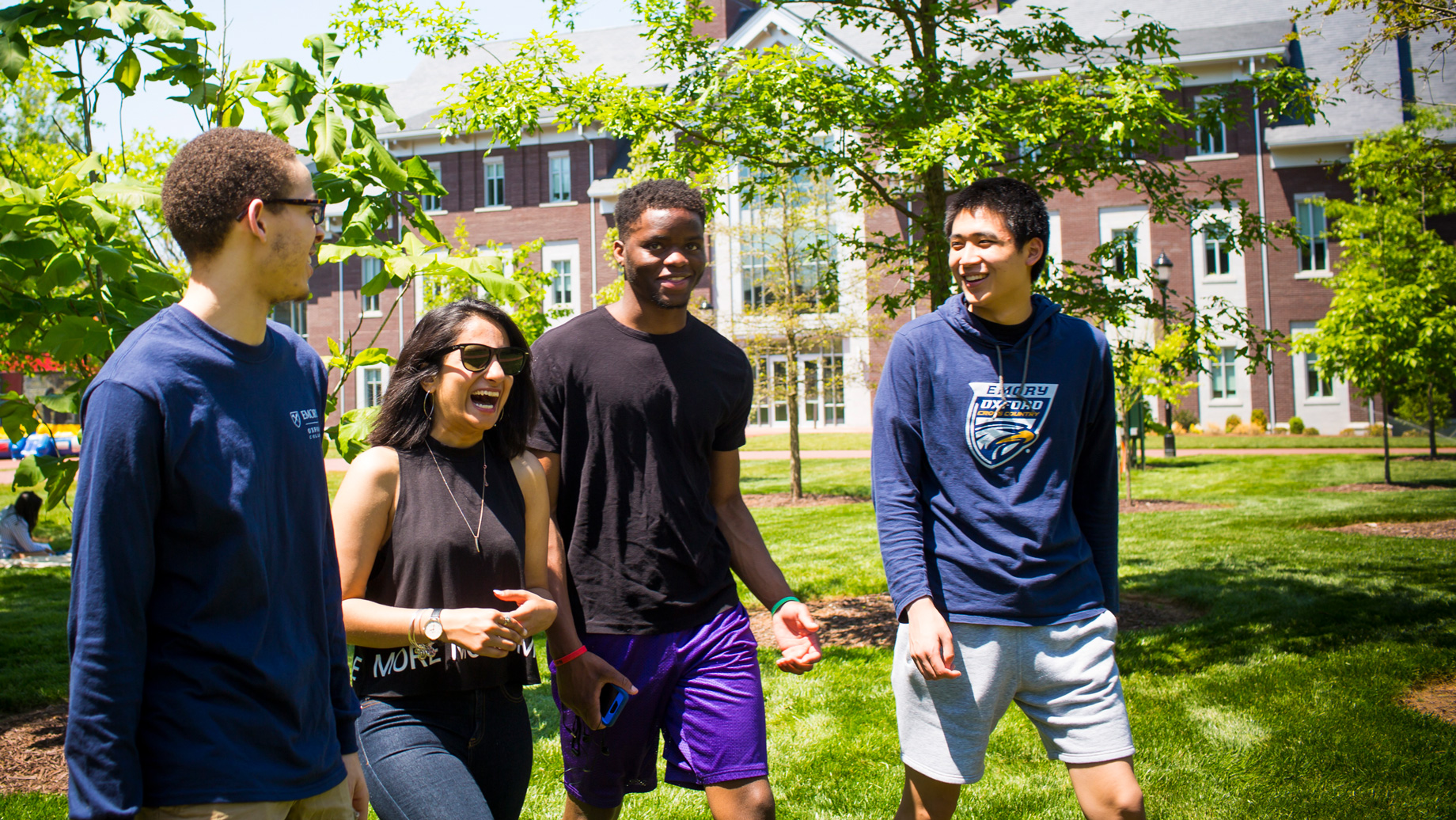
Oxford College Community
Emory was founded in Oxford, Georgia, in 1836. Located 38 miles east of Atlanta, the campus is now home to Oxford College and its tight-knit community of engaged students, faculty, and staff. It’s a place where academics are taken seriously and people look out for you and work together.
Although some of Emory University’s oldest buildings are found at Oxford, nearly the entire campus has been renovated over the last decade—with a new science building, dining hall, and residence halls; library and classroom space updated with present-day students in mind; and more to come.

Housing and Dining
Almost all Oxford students live on campus, so housing and dining play a big role in our community. Your residence hall is a five-minute walk to anywhere you need to go—the dining hall, library, student center, and gym, as well as academic buildings.
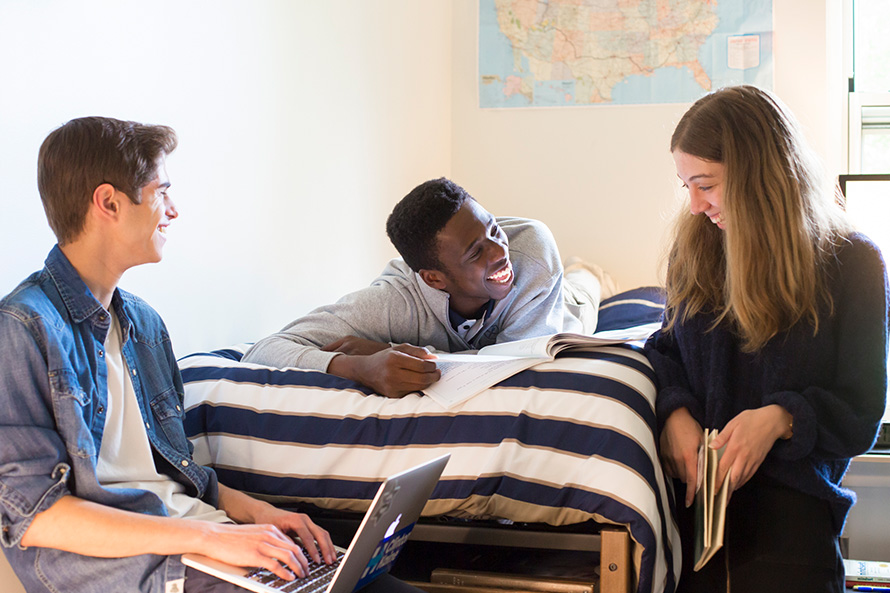
Campus Life
Connecting with classmates, performing in theater or sports, or making an impact through service or leadership, it all comes together to make your time at Oxford meaningful and fun.
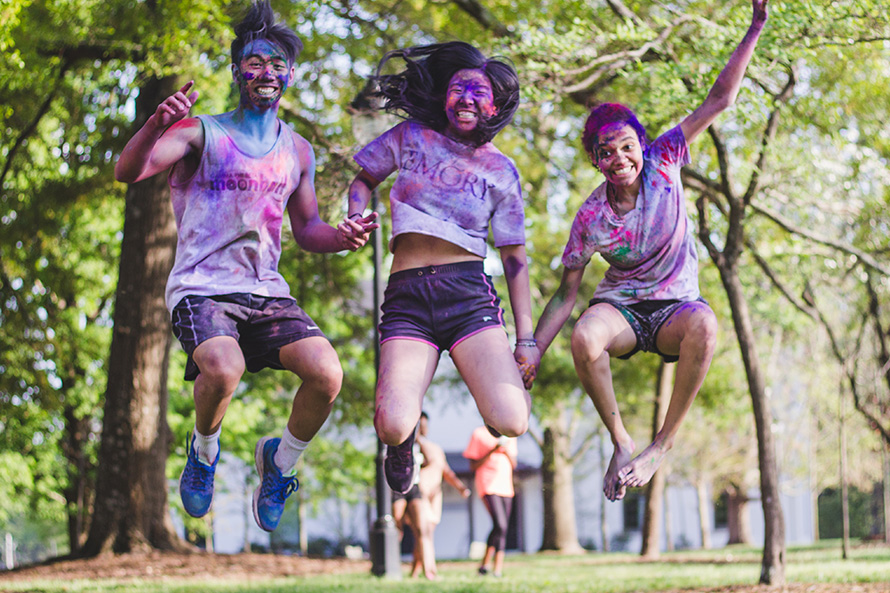
Our Location
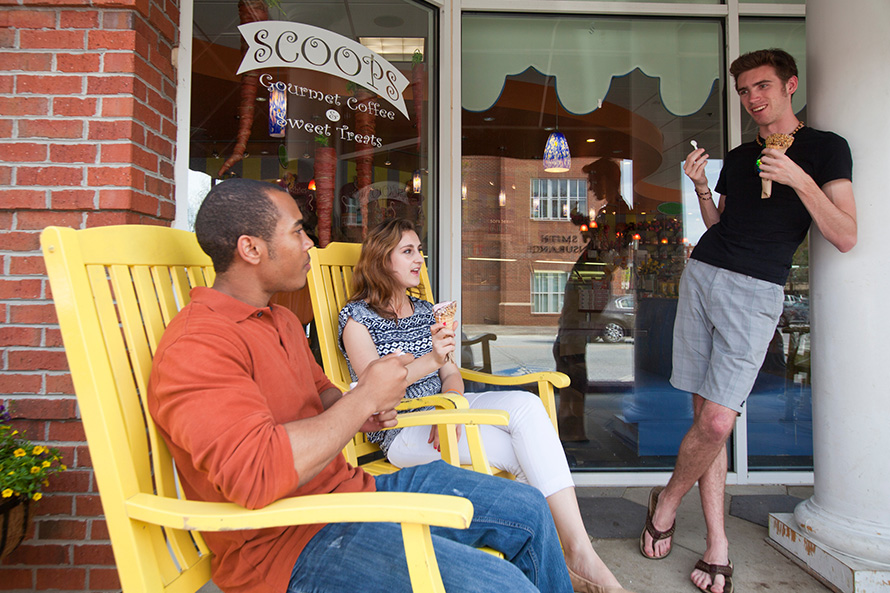
Oxford is right next door to Covington, a lively small city with a historic town square that features student-favorite restaurants and shops as well as concerts and other events. It's about a mile away, an easy bike ride or walk from campus.
Atlanta
A vibrant, world-class city less than an hour from campus, Atlanta is the Southeast's arts, business, and tech hub. A shuttle runs from Oxford to the Atlanta campus several times a day and more on weekends. From there, explore the city's neighborhoods, restaurants, and culture.
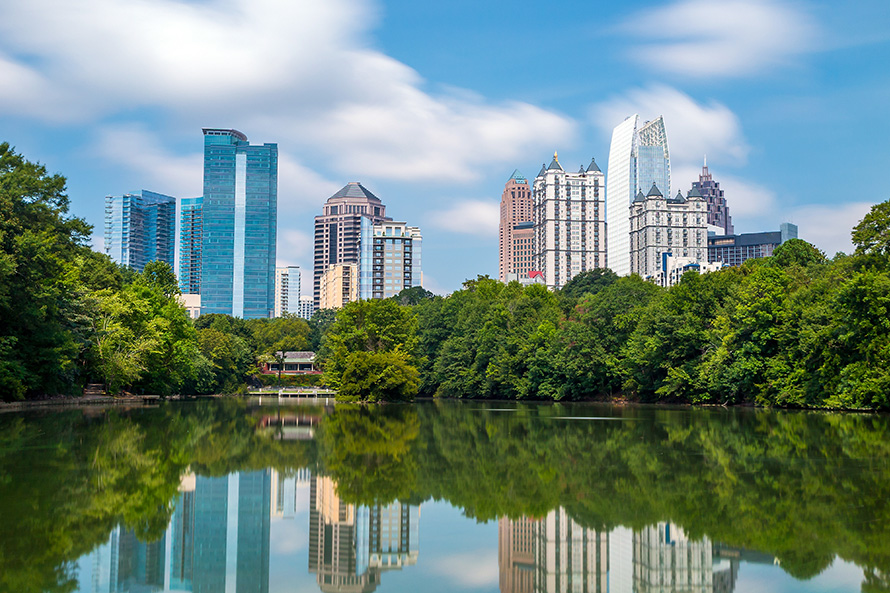
Hear from our students

“I'm Syrian, and Jordanian-Palestinian, and I grew up in a really white neighborhood and had a lot of shame in my culture. I had immigrant parents which complicated things even more, but coming to Emory I found a cultural community that I never had access to before. I am able to advocate for things that are happening in the countries that I'm from, and I don't think I'd be able to speak about or advocate for my cultural identities as explicitly as I do now if I hadn't met other people from those identities here.”
—Noor, senior